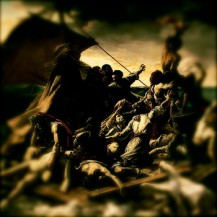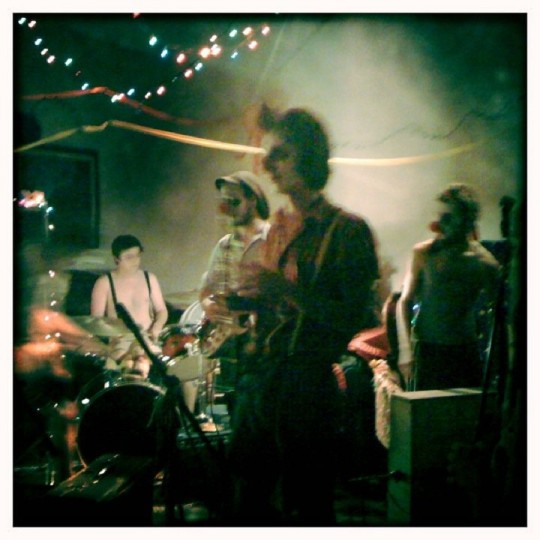Christ, Lord’s “Magnalia Christi”
Christ, Lord offer a different kind of music to the Atlanta scene, but may that only grab hold of your attention more. They’ve got a story to tell about the past, and it’s both sad and beautiful. – HC
Hannah Cook
8.3
out of 10
Christ Lord
Magnalia Christi
August 11th, 2010
Favorite Gentlemen
For your ears and mind, the sound of history.
Atlanta’s Christ, Lord comes with their first full-length album, Magnalia Christi, resonating like the eras we’ve never lived and have only read in the most classic of novels. Even the song names, most of which appear to be in another language—Latin, perhaps–have a timely barrier. It’s daunting not being able to understand the song titles—daunting and mysterious.
Christ, Lord began in 2009 when Brandon Camarda and Christian Ballew first collaborated under the name, and added members Ryan Gregory, Ryan Lamb, Cody Hamlet and Alex Gregor from there to round out their unconventional sound.
There’s certainly music to be commended on Magnalia, Christi, especially as Christ, Lord’s first full-length. With an upright bass, cello, violins, trumpets and clarinets, simple percussions and robust vocals, Christ, Lord may well have come right from the dusty streets of Paris during the Renaissance, hand-crafted instruments, ruffled blouses and all. The lyrics, though appearing less than the instrumentation, tell a tale, romantic, spiritual or brutal, and only add to this classical manifestation. And let us not forget the aesthetics of the album art, a sorrowful moment caught in a blurred, humanistic painting.

The album begins with a moody accordion in “Calavera Catrina.” Soon, marching percussion, violin and a voice nearly mistakable as Zachary Condon of Beirut join in, and at this moment, Christ, Lord reveals itself as the fine group effort that it is.
“Ondine” and “Undine” are undoubtedly depressing, two wordless tragedies. It’s difficult to imagine anything other than a weeping woman on a black and white screen, make up smeared and face distorted, where the only sound is the sad, sustaining piano and the wallowing violin that she seems to be sobbing in sync with. As joyless as those songs are, though, there remains a beautiful air about them.
The mood, still worldly and ancient, changes with songs like “Kelpie” and “Demoiselle,” which are curious numbers. The instruments are more disorderly and fast-paced, meant to be supported with clumsy clapping and odd lyrics.
The album concludes with the romantic “Sister Cervus” as Camarda and Ballew harmonize their swaying vocals, layered with a chipper violin and accordion. When the horns join in, it’s a splendid ball room dance, and all ends well for Magnilia Christi.
Christ, Lord offer a different kind of music to the Atlanta scene, but may that only grab hold of your attention more. They’ve got a story to tell about the past, and it’s both sad and beautiful.
